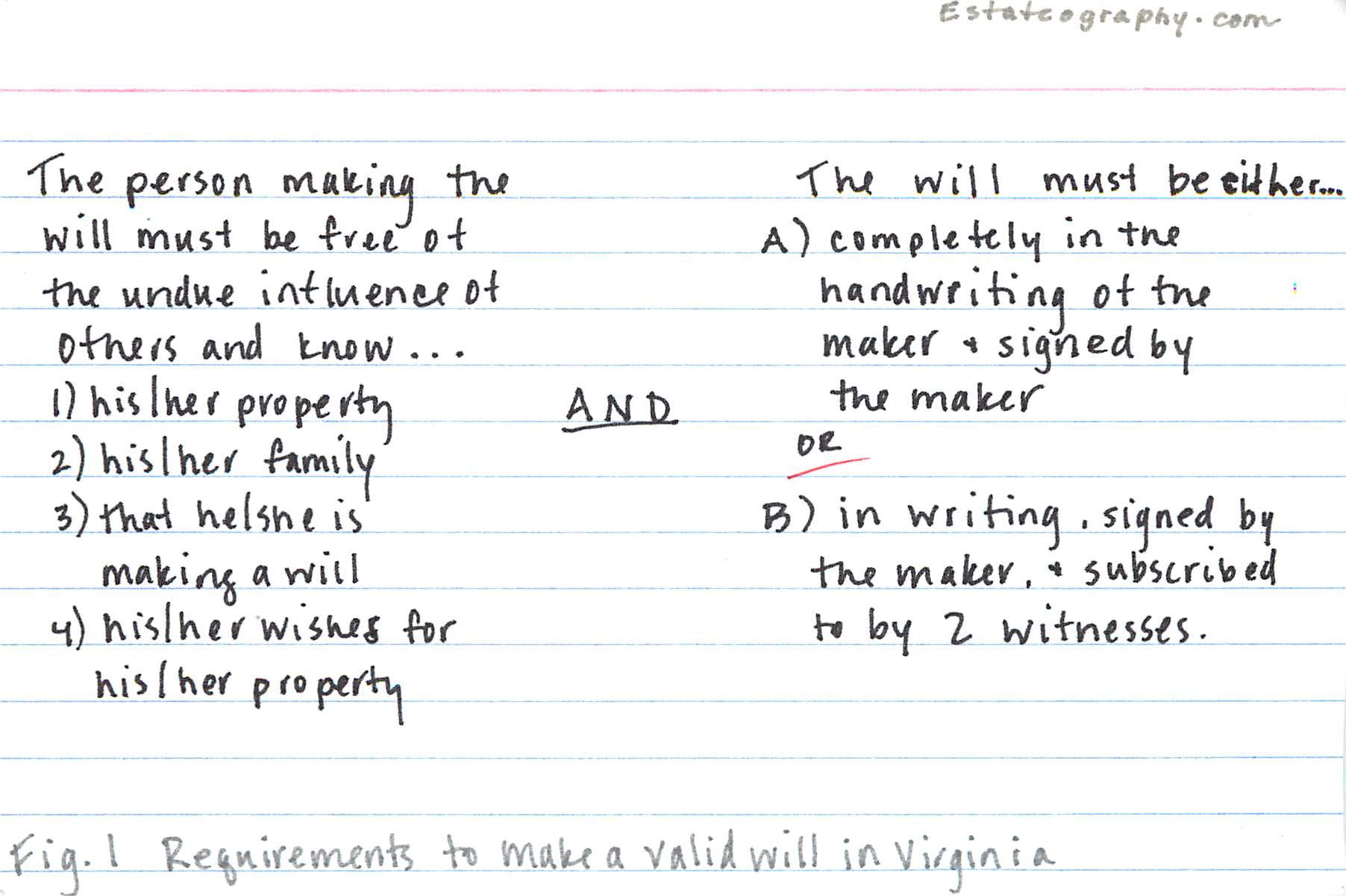Making a Will in Virginia: Requirements

Wills are governed by state law, and every state has different rules. This post is about the rules in Virginia.
Who Can Make a Will?##
Capacity###
To make a will, a person must have "capacity." In Virginia, that means the person has to be at least 18 years old (or emancipated) and "of sound mind" at the time the will is signed.
Being "of sound mind" means that, at the time of execution, the person making the will:
- was capable of recollecting his/her property,
- was capable of recollecting the natural objects of his/her bounty and their claims upon him/her,
- knew the business about which he/she was engaged, and
- knew how he/she wished to dispose of his/her property.
Technically, this requirement isn't part of the capacity requirement; it's related to the validity of the will. But it's something to think about when making a will.
What Makes a Will a Will?
It's not fancy paper, sentences that never seem to end, or a sprinkling of "herebys" and "heretofores". What makes a will a will is compliance with a set of rules called formalities or Wills Act formalities.
The Purposes of the Wills Act Formalities
The formalities serve several purposes:- to evidence that the document is actually the will of the testator,
- to prevent fraud and undue influence,
- to remind the testator of the solemnity of the act of making a will and prevent people from making wills too casually, and
- to serve as a set of easy rules for courts to apply to determine whether some document counts as a will.
When a witnessed will is offered for probate, at least one of the witnesses has to be found. Alternatively, a will can be "self-proving". A will is self-proving if a special affidavit is property executed and attached to the will. Properly executing the affidavit requires a notary.
